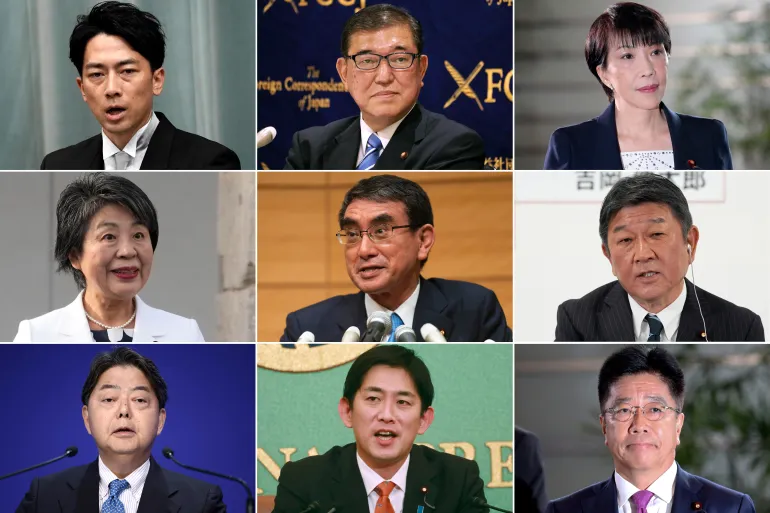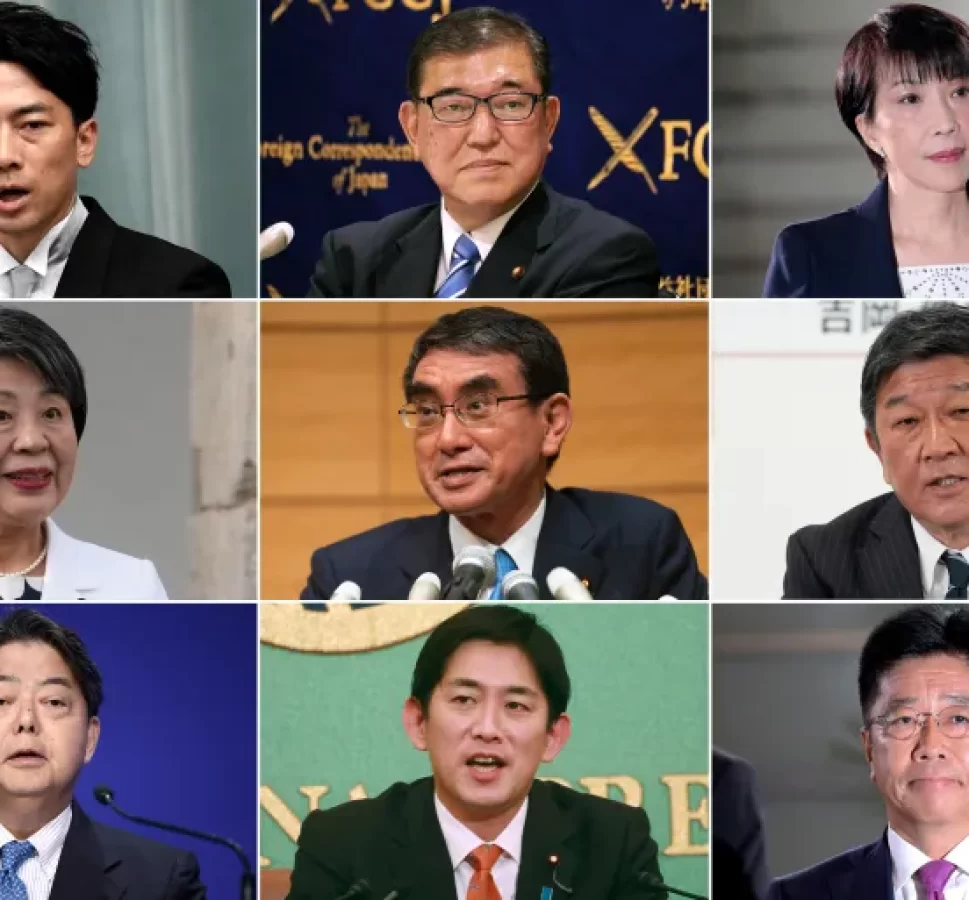
A surfer and a nationalist are among the record number of contenders to replace Prime Minister Fumio Kishida.
Japan’s governing Liberal Democratic Party (LDP) has named the nine candidates who will run in a leadership race scheduled for September 27 to replace Prime Minister Fumio Kishida, whose three-year term was tarnished by scandals.
The record number of contenders named on Thursday include former Environment Minister Shinjiro Koizumi, 43, the surfer son of former Prime Minister Junichiro Koizumi, and Economic Security Minister Sanae Takaichi, 63, a nationalist vying to be the first female prime minister.
The LDP holds a majority in parliament, which means the winner is guaranteed to become Japan’s next premier.
Koizumi has promised to change an “old-fashioned LDP” and accelerate reforms to revitalise Japan, including by making the job market more flexible. He said he would hold a snap election soon after taking office to seek the public’s mandate.
Koizumi supports a revision to a 19th-century civil code requiring married couples to choose one of their surnames, which has caused most women to adopt their husbands’ surnames. He wants to allow an option of keeping separate surnames which is supported by the country’s powerful business lobby.

He has said he will strengthen Japan’s alliance with the United States and expand a cooperation network with other like-minded nations to deter China’s growing influence. He wants to meet his Chinese and South Korean counterparts soon after taking office and hold talks with North Korea’s leader Kim Jong Un.
Leading the opinion polls are Koizumi and former Defence Minister Shigeru Ishiba, 67.
Ishiba is running in the leadership race for a fifth time. Despite his popularity among general voters, he has struggled to win enough support from fellow party lawmakers. He has said this will be his “final battle”.
A security and defence expert, Ishiba has proposed an Asian version of the NATO military alliance. He is a supporter of democracy in Taiwan, which China views as its own territory.
Ishiba promises to push for gender equality and measures to address low births and Japan’s declining population.

The other candidates are Yoko Kamikawa, 71, top diplomat for Kishida; Taro Kono, 61, outspoken reformist and digital affairs minister; Toshimitsu Motegi, 67, the LDP’s secretary-general; Takayuki Kobayashi, 49, former economic security minister; Katsunobu Kato, 68, chief cabinet secretary; and Yoshimasa Hayashi, 63, former defence minister and foreign minister.
How the race works
The nine candidates and other LDP lawmakers will meet at the party headquarters in Tokyo for the vote on September 27 to decide on its next president and, since it holds a parliamentary majority, the next prime minister.
Each of the LDP’s 369 lawmakers will cast a vote in the first round, while an equal number of votes will be distributed among rank-and-file members polled earlier.
In the 2021 leadership election, the party had 1.13 million registered members, its website showed.
A candidate securing a simple majority in that poll becomes the party leader. If nobody secures a majority, a run-off follows between the two candidates with the most votes.
In the second round, each lawmaker again gets one vote, but the share of the rank and file drops to 47 votes, one for each of Japan’s prefectures.
Once a new LDP leader is elected, Japan’s parliament will gather, probably in early October, to pick a new prime minister, who is then expected to announce a new cabinet and appoint key LDP officials.
The new prime minister may call a snap general election to seek a national mandate.






